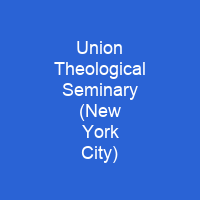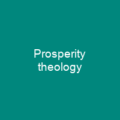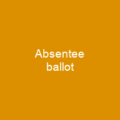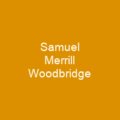Union Theological Seminary in the City of New York is a non-denominational Christian seminary in Morningside Heights, Manhattan, New York City. It was founded in 1836 by members of the Presbyterian Church in the USA, but was open to students of all denominations. Since 1928, the seminary has served as Columbia’s constituent faculty of theology. In the 20th century, Union became a center of liberal Christianity.
About Union Theological Seminary (New York City) in brief
 Union Theological Seminary in the City of New York is a non-denominational Christian seminary in Morningside Heights, Manhattan, New York City. It was founded in 1836 by members of the Presbyterian Church in the USA, but was open to students of all denominations. Since 1928, the seminary has served as Columbia’s constituent faculty of theology. In the 20th century, Union became a center of liberal Christianity. It served as the birthplace of the Black theology, womanist theology, and other theological movements. The seminary is represented by one voting faculty member and one non-voting student observer in the Columbia University Senate. On June 10, 2014, the Seminary announced that it would be joining the movement to divest from the fossil fuels industry in protest at the damage it is causing to the environment. The Seminary’s 108 million endowment will no longer include any fossil fuel investments from Columbia, although it is still administratively independent from the university.
Union Theological Seminary in the City of New York is a non-denominational Christian seminary in Morningside Heights, Manhattan, New York City. It was founded in 1836 by members of the Presbyterian Church in the USA, but was open to students of all denominations. Since 1928, the seminary has served as Columbia’s constituent faculty of theology. In the 20th century, Union became a center of liberal Christianity. It served as the birthplace of the Black theology, womanist theology, and other theological movements. The seminary is represented by one voting faculty member and one non-voting student observer in the Columbia University Senate. On June 10, 2014, the Seminary announced that it would be joining the movement to divest from the fossil fuels industry in protest at the damage it is causing to the environment. The Seminary’s 108 million endowment will no longer include any fossil fuel investments from Columbia, although it is still administratively independent from the university.
It houses the Burke Library at Union Theological seminary, one of the largest theological libraries in the Western Hemisphere. In 1939 the Auburn TheologicalSeminary moved to its campus and departed in 2014. In 1895, members of Union The theological seminary Alumni Club founded Union Settlement Association. Union Settlement still exists, providing community-based services and programs to support the immigrant and low-income residents of East Harlem. It reaches more than 13,000 people annually at 17 locations throughout East Harlem through a range of programs, including early childhood education, youth development, senior services, job training, the arts, adult education, nutrition, counseling, a farmers’ market, community development, and neighborhood cultural events. In 2008, feminist theologian Serene Jones became Union’s first president for its 172-year history, succeeding Joseph C. Hough, Jr.
You want to know more about Union Theological Seminary (New York City)?
This page is based on the article Union Theological Seminary (New York City) published in Wikipedia (as of Jan. 10, 2021) and was automatically summarized using artificial intelligence.







